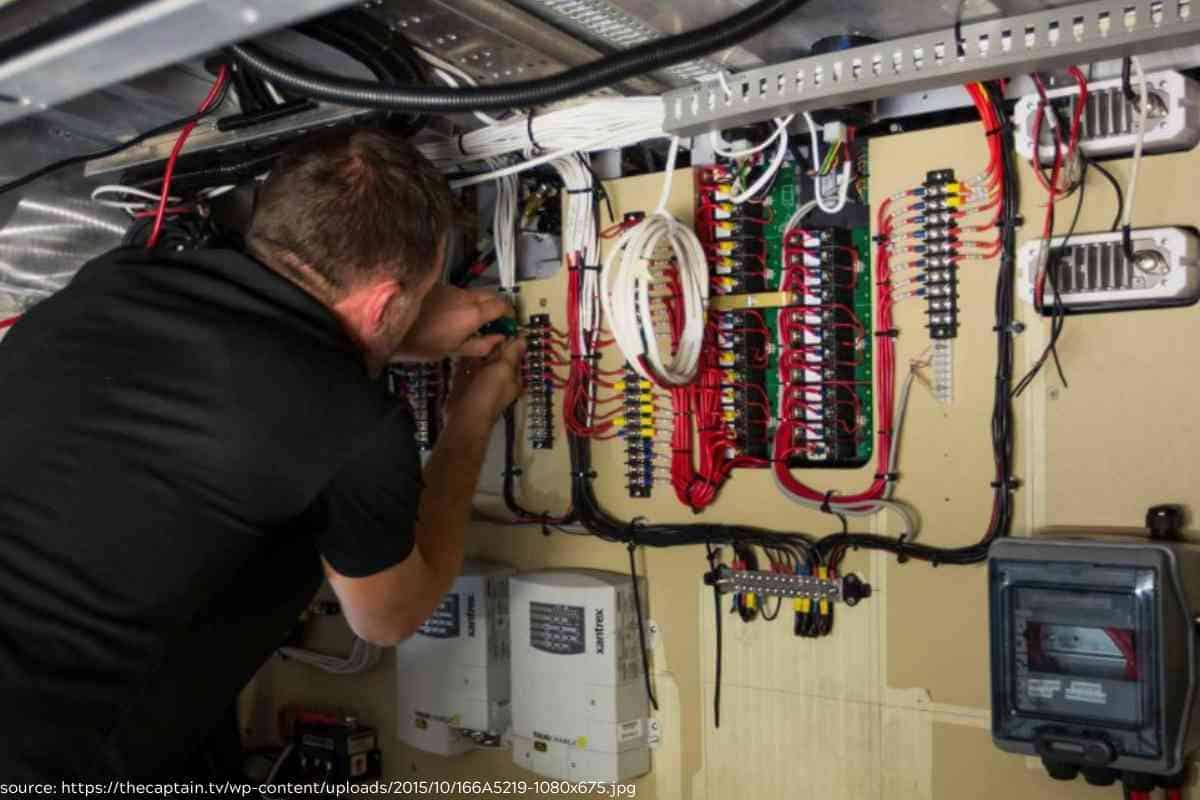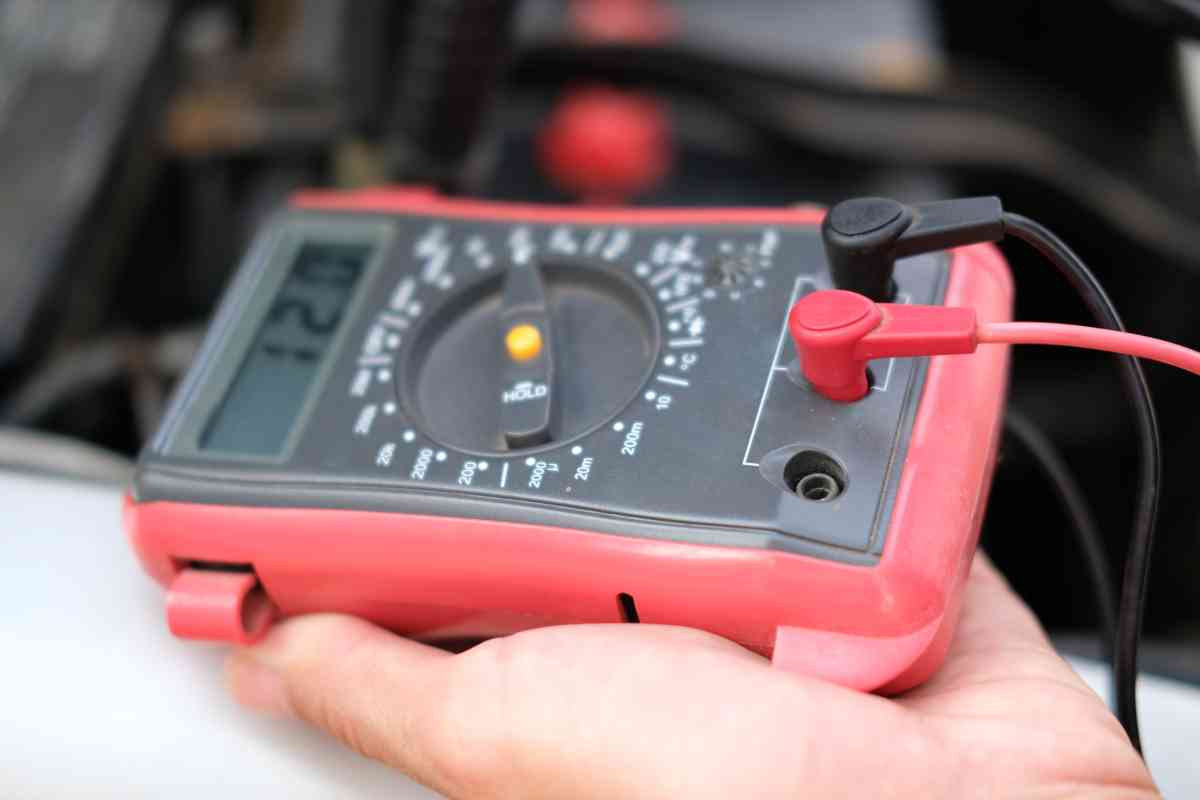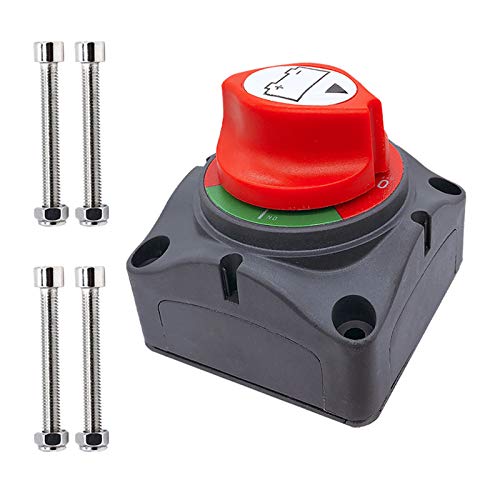How to Troubleshoot Common Boat Electrical Issues
You don’t always have to hire an electrician to solve problems with your boat’s electrical system. You can troubleshoot minor problems yourself.

How do you troubleshoot boat electrical issues?
If something on your boat doesn’t have power, check the fuses or circuit breakers first. Second, see if the problem is with the device you are trying to power instead of your boat’s electrical system. If that isn’t the problem, there is something wrong with the wiring, battery, or alternator.
I have been fixing small electrical problems on my boat for years and know a lot about electricity and electrical problems. Electrical problems can get worse and become dangerous if you don’t solve them. If something on your boat isn’t working, find out why, because faulty or damaged boat wires can heat up and start a fire.
How to Troubleshoot Common Boat Electrical Issues
You don’t always need an electrician to fix boat electrical issues. A lot of the time, you can save money by fixing the problem yourself. You only need an electrician for bigger and more complex problems.
Fixing boat electrical issues is not very difficult. The first thing you need to learn is how to identify the problem. You don’t need to be an expert to go from what isn’t working to what part of the electrical system is broken.
After learning to diagnose the problem, you can learn to do basic repairs yourself. You should also learn about safety, which is crucial when doing electrical work. Stay safe and don’t risk a high-voltage electric shock.

Simple Explanations First
Start by assuming there is a simple cause of the problem and only assume the cause is more complex if the simple cause is ruled out.
For example, let’s imagine that a navigation light stops working. The simplest explanation is that the light bulb is burnt out, the second simplest is a blown fuse or tripped circuit breaker.
If those explanations fail, get a voltmeter out and see where the electricity stops. There could be faulty or damaged wiring somewhere between the power source and the navigation light.
Voltmeters Are Great Tools
You can also use the voltmeter to measure resistance to check if something is broken. First, isolate whatever you want to test from the boat’s electrical system.
If you don’t have one, here’s an affordable, reliable one that I’ve used for years on Amazon for less than ten bucks:
Then, switch the voltmeter to the resistance setting and check if electricity can run through whatever you are testing. If electricity won’t run through it, the voltmeter will report infinite resistance. This proves that the device doesn’t work, because no electric device can work if current won’t flow through it.
Common Marine Electrical Problems
Poor workmanship and neglect are the root cause of most boat electrical problems. Poorly done installation/repair work leads to a wiring problem, a poor connection, blocked electrical current flow, or a loose alternator belt.
These problems prevent electrical flow, causing electronics to stop working. Problems with marine electrical systems arise due to human error and not defective parts.
Whenever you repair or replace anything, make sure you do the job right. If you aren’t sure of your skills, hire an electrician. If you got your boat used, the previous owner might have done some shoddy electrical work.
Troubleshooting Electronics Suddenly Failing
Sometimes, the electronics immediately fail while you are out on the water. An increasing number of people report this. What causes this, and is there anything you can do about it?
Possibly, this is caused by your battery not having enough power. If the battery is only partially charged, it might produce enough electrical current to run your devices at first, but then quickly weaken and burn out.
You might need to run your boat more often to keep the battery charged. The engine powers the alternator, which charges the battery. There’s only so long you can run the battery without running the engine.
Brass Rather Than Copper Buss Bars
Many people use brass rather than copper buss bars for their boat’s 12V system. Sometimes, a brass buss bar doesn’t cause any problems.
However, copper is much better because it is a better conductor. Brass is only a quarter as conductive as copper. Brass may lead to a bulb or motor suddenly failing when you least expect it.
Again, brass sometimes works – some people have used brass buss bars without problems for decades. However, not all boat owners get away with using brass buss bars forever. These components should be made of much more conductive copper instead.
Alternator Problems
An alternator is a generator powered by the engine’s movement. It uses the engine’s motive power to create electricity and charge your boat’s batteries. Without a working alternator, your battery will die.
If your battery is dead, it could easily be the alternator. Use a voltage meter to check the alternator and see if it is producing power. If it is, the problem might be with the battery or the connection between the battery and the alternator.
Short Circuits and Fires
Boat electrical problems can do worse than make your lights and electronics stop working. A short circuit can expose a wire to hundreds of times its normal amount of electricity, creating heat and starting a fire. While boat electrical fires are not exactly common, they can lead to death, injury, or destroyed property.
If you ever discover a short circuit while troubleshooting a problem, take the problem very seriously. A short circuit is a severe safety hazard that has to be dealt with before it is safe to use your boat again. Don’t wait until later to fix the dangerous problem.
To prevent short circuits, clean up tangled and disorganized wiring as soon as you see it. A battery terminal should normally not have more than three wires connected to it. Test the wires with a volt meter to look for problems.
Detecting Fire Hazards
If you are troubleshooting blown fuses or a lack of power to certain parts of your boat, you might find hot wires. Take hot wires very seriously and fix the problem before you do anything else with your boat. Wires get hot when there is too little resistance and too much electricity running through the wires.
You don’t have to be an expert on electrical problems to use a boat safely. However, you should still learn the basics of your boat’s electrical system. That way, you will often be able to tell that there is something seriously wrong before anything dangerous happens.
Again, the battery terminals are relevant. Take a look at them and ensure there is nothing wrong with how the wires connect to them.
Blown Fuse or Circuit Breaker

Sometimes, fixing the problem is as easy as replacing a fuse. Common marine electrical problems sometimes have very quick and easy solutions. Don’t overlook the easy solutions when troubleshooting.
While a blown fuse is a minor problem, a fuse that repeatedly blows is not. If the same fuse has to be replaced twice, this suggests a deeper electrical problem. At worst, there is a short circuit that will start a fire if the problem is not fixed soon.
This sounds obvious, but you should always use fuses or circuit breakers. Never try to run a boat that doesn’t have fuses/breakers. All parts of your boat’s electric system must be protected by fuses/breakers or it is dangerous to use your boat. And of course, always have a fire extinguisher on your boat.
Installation and Maintenance Issues
If something on your boat was not installed or repaired properly, it may fail. This can leave you with a problem that doesn’t have an obvious cause. For example, poor wiring can lead to a connection failing and depriving some things on your boat of power.
If small repairs are done poorly or are not done at all, something will fail eventually. Lack of boat maintenance leads to the same problems as a poor initial installation. There could be a short circuit or a connection could fail.
Insufficient Battery Capacity
There also might just not be enough electricity to run everything on your boat. If you run into problems when running multiple devices at once, you might have insufficient battery power.
Other problems might also limit the amount of power available. A wiring problem might reduce the amount of power available to electrical circuits. There might also have been a battery failure and your battery will have to be replaced.
Sometimes, your boat’s electrical system becomes connected to the ground. The electricity runs into the round and the power fails. This is known as the most common fault and often happens because of poor maintenance.
What is a Battery Isolator?
A battery isolator is a device that prevents your electronics from draining the battery dead and preventing you from starting the engine. It allows your electronics to run on a secondary battery, and not the primary battery that gets your engine going.
Everything on your boat (computers, fridge, television, lights, sound systems) should run on your secondary battery. If your battery gets drained completely dead, check the Battery isolator. You should sometimes shut off the battery isolator (there is a battery isolator switch) when working to reduce the risk of shock.
These are definitely worth having. Here’s a well-reviewed one for less than twenty bucks:
Does Saltwater Make Electricity More Dangerous?
Water and electricity don’t mix. Everyone knows that electricity can move through the water and hurt people, but people still underestimate the risks.
Usually, saltwater reduces rather than increases the risk of electrocution. Saltwater is more conductive than freshwater, so electricity moves through it more easily. However, electrocutions are still more common in freshwater than in saltwater.
More conductivity makes saltwater less and not more dangerous. In less conductive freshwater, the electricity will move into the person’s body and shock them. In more conductive saltwater, the resistance of the water is less than the resistance of the human body, so the electricity may go around rather than through a person.
Electrocution Can Cause Drowning
A person’s muscles may seize up if they get a serious electric shock. In the water, this can lead to drowning and death. It is thankfully less likely in saltwater.
It takes about 2 volts per foot to paralyze someone’s muscles. This is hard to achieve in saltwater.
Some people are electrocuted and drown when swimming in marinas due to faulty boat wires putting electricity into the water. This happens in marinas in the great lakes and other freshwater environments, not in the sea. While you are not always safe in saltwater, it is significantly less dangerous than freshwater.
Key Takeaways
- You can diagnose and fix many electrical problems yourself.
- Start with the simplest explanation for the problem.
- Voltmeters are great tools for fixing electrical problems.
- Electrical work can be dangerous, so take safety very seriously.
- Saltwater makes electricity less and not more dangerous.


